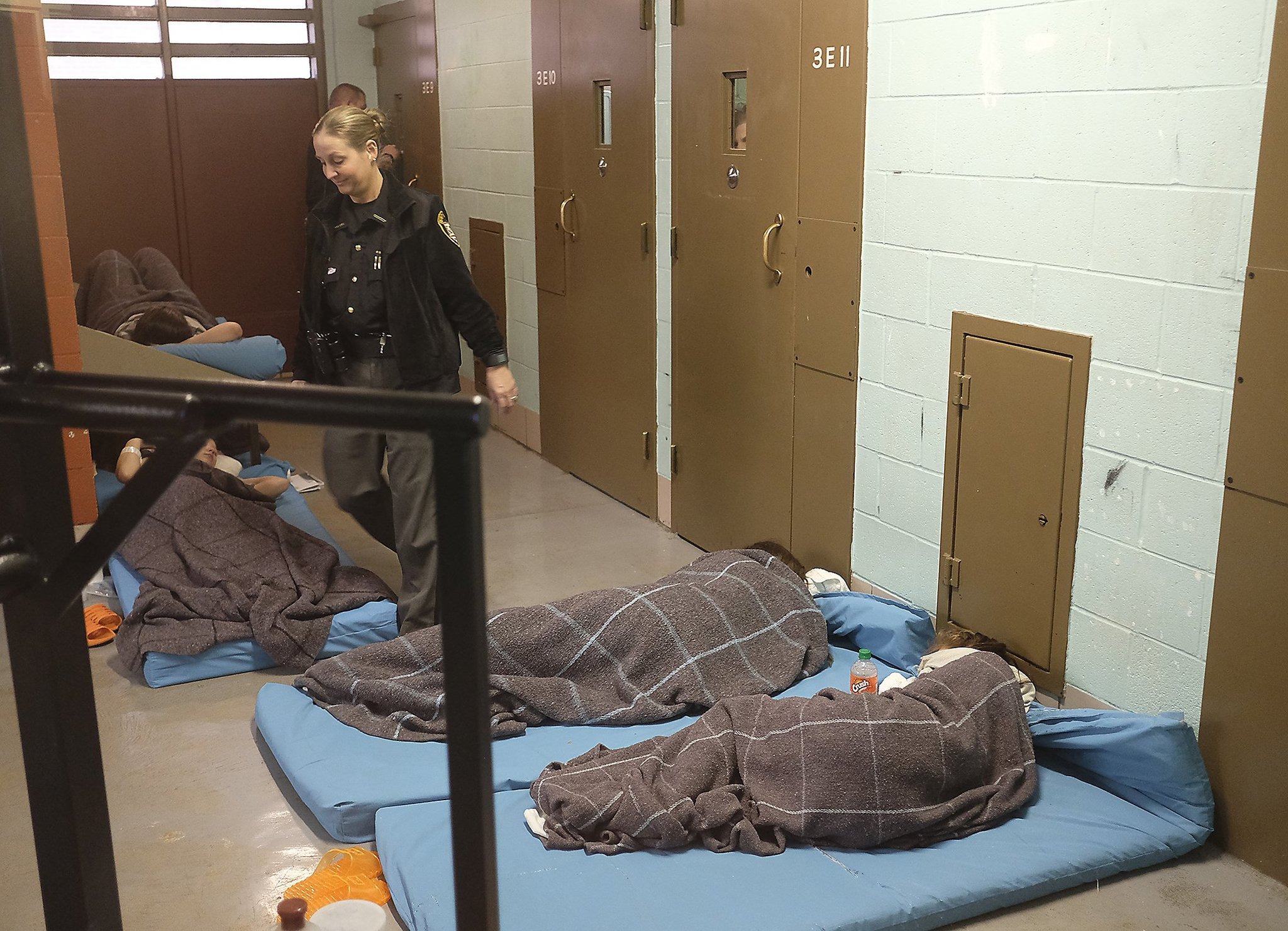Space at Wake County’s jails is rapidly diminishing, with some inmates already compelled to sleep on the floor due to overcrowding. Projections suggest that Wake County will need to expedite its plan to spend $21.9 million to reopen the detention center annex, but even this solution only partially mitigates the problem.
Bill Lawhorn, representing CGL Companies, addressed the Wake County Board of Commissioners on Monday, emphasizing the pressing issue: “Your jail is full. You’re starting to push those limits on those empty beds.”
The situation reflects a broader trend of overcrowding in jails and prisons across the United States, driven by various factors including increases in arrests and longer sentences. Overcrowded facilities pose significant challenges for inmate safety, access to services, and overall management.

Wake County Inmates (Credits: Dayton Daily News)
In Wake County, the jail population has been steadily increasing, putting strain on the existing infrastructure. The $21.9 million plan to reopen the detention center annex is an attempt to alleviate some of this pressure by providing additional capacity. However, the need to accelerate this plan underscores the urgency of the situation.
Efforts to address overcrowding in jails often involve a multifaceted approach. This can include expanding facilities, implementing diversion programs for low-level offenders, and improving access to mental health and substance abuse treatment.
Collaboration between law enforcement, the judiciary, and community organizations is essential to developing effective strategies. In recent years, there has been a growing recognition of the need for criminal justice reform to address issues like overcrowding.
Many jurisdictions are exploring alternatives to incarceration, such as pretrial diversion programs and community-based supervision, to reduce the reliance on jail beds.
While these efforts can help alleviate immediate pressures, addressing the root causes of overcrowding requires a broader societal approach. This includes addressing issues like poverty, mental illness, and substance abuse, which can contribute to involvement in the criminal justice system.
In the case of Wake County, the need to reopen the detention center annex highlights the critical need for ongoing attention to these issues.
Failure to address overcrowding can have serious consequences, including compromised safety for inmates and staff, inadequate access to services, and increased costs for taxpayers.
As Wake County grapples with these challenges, it is essential to prioritize solutions that not only address immediate capacity needs but also work toward long-term strategies to reduce reliance on incarceration and promote a more equitable and effective criminal justice system.
























